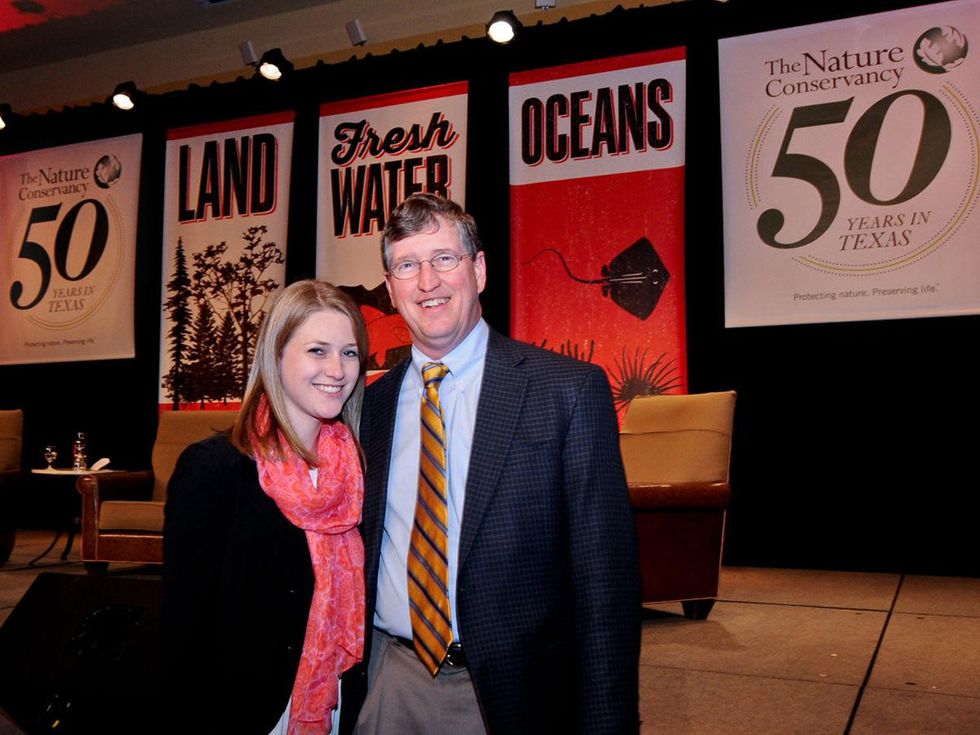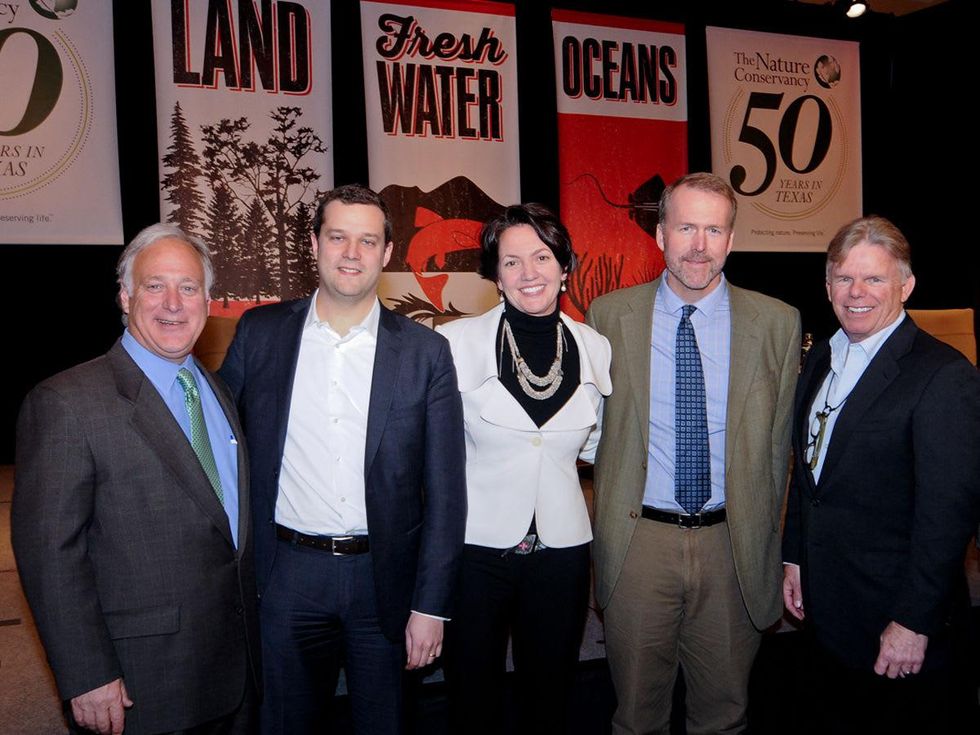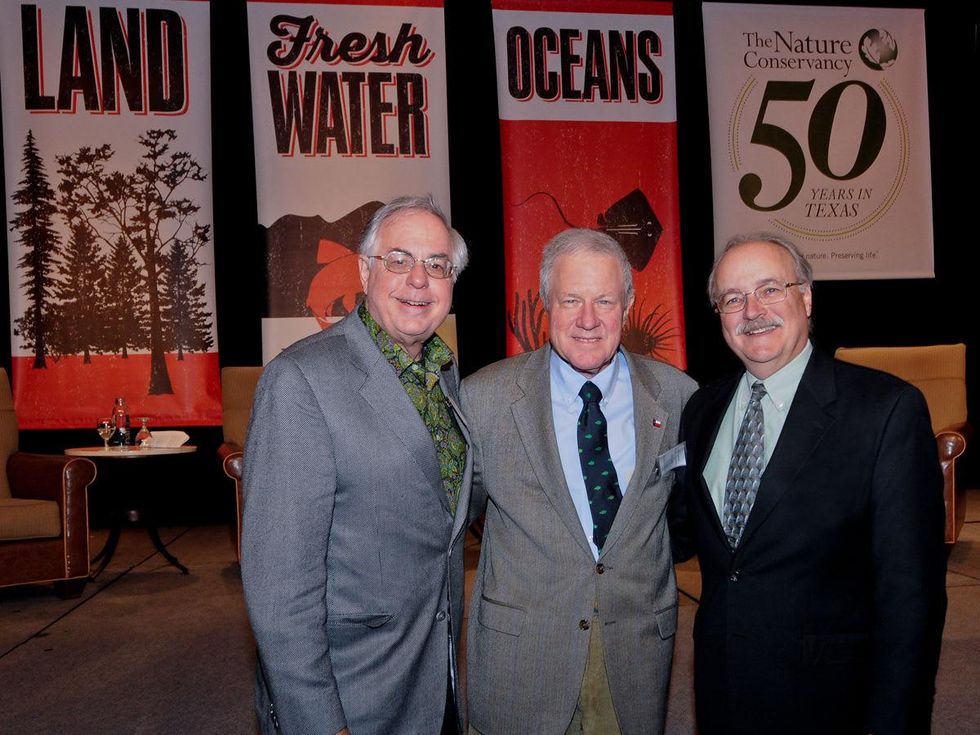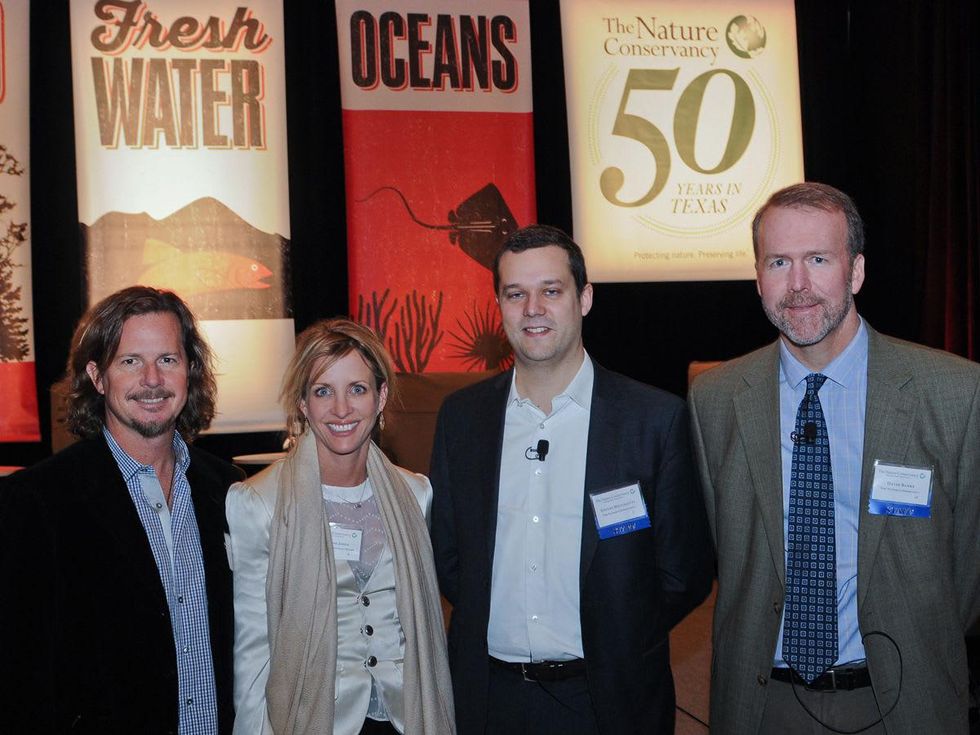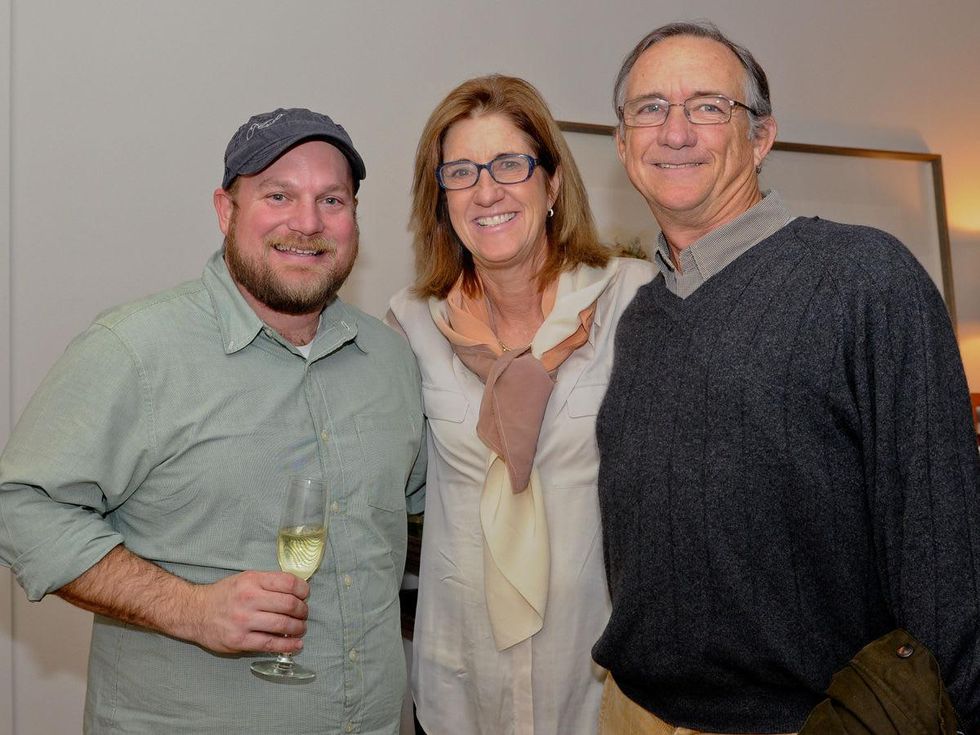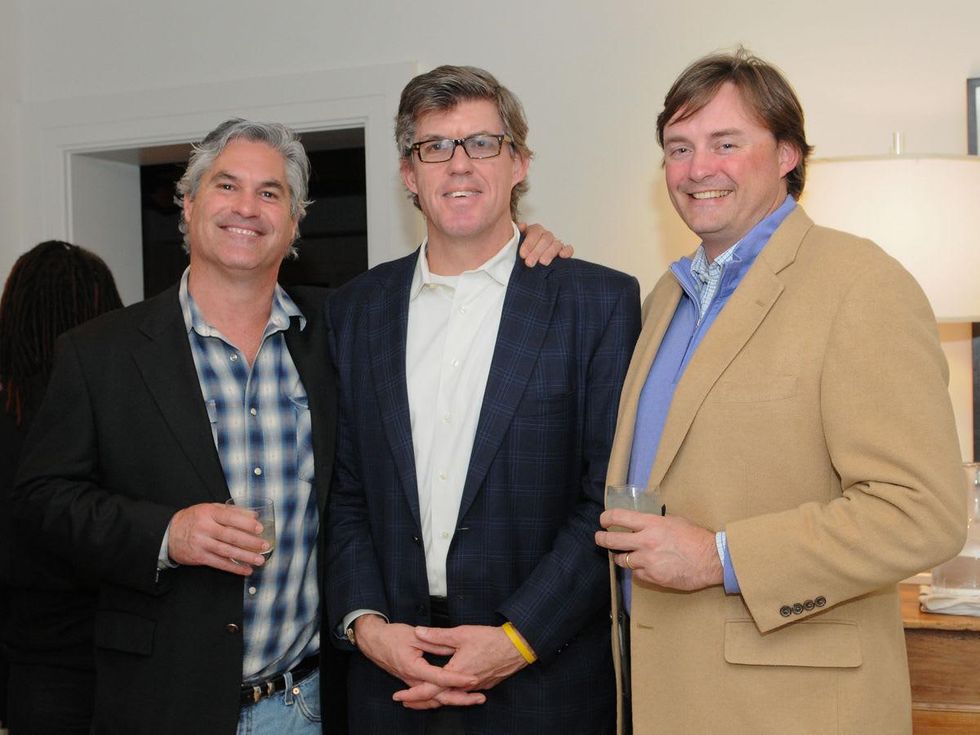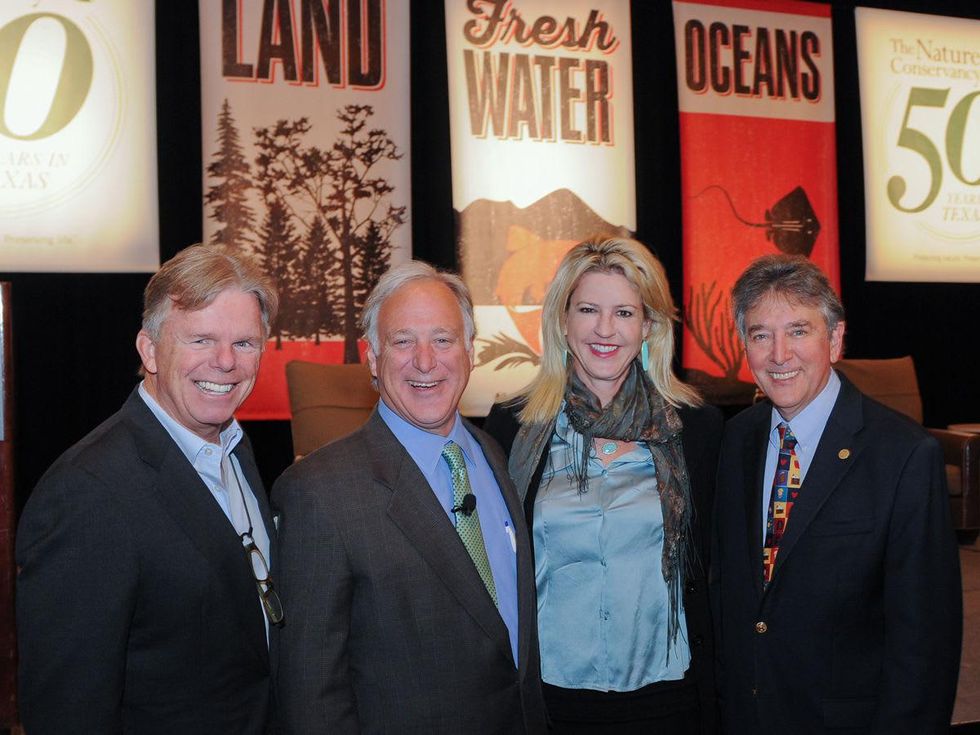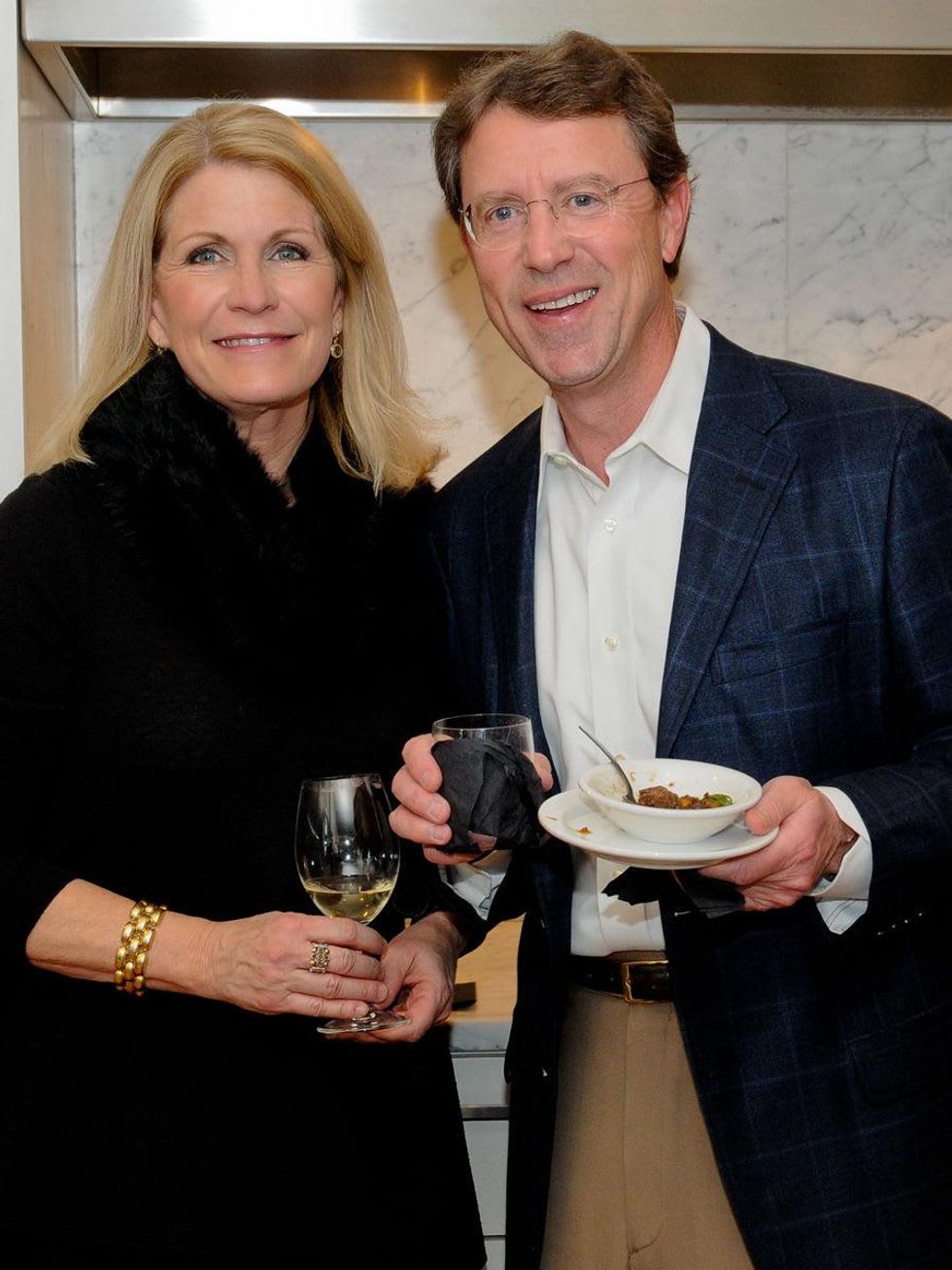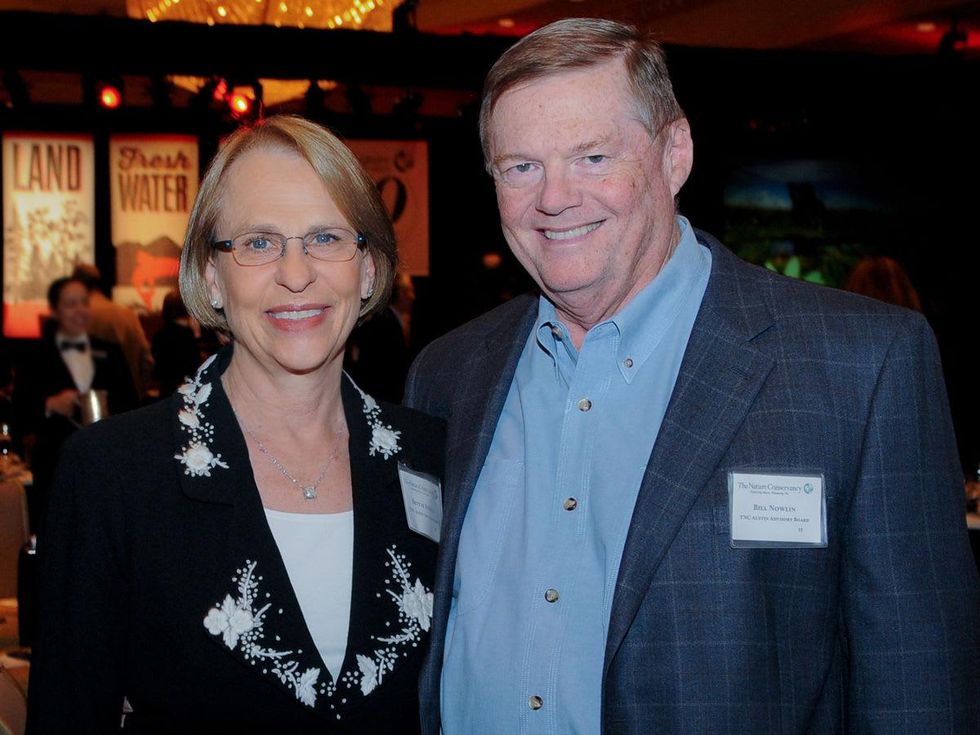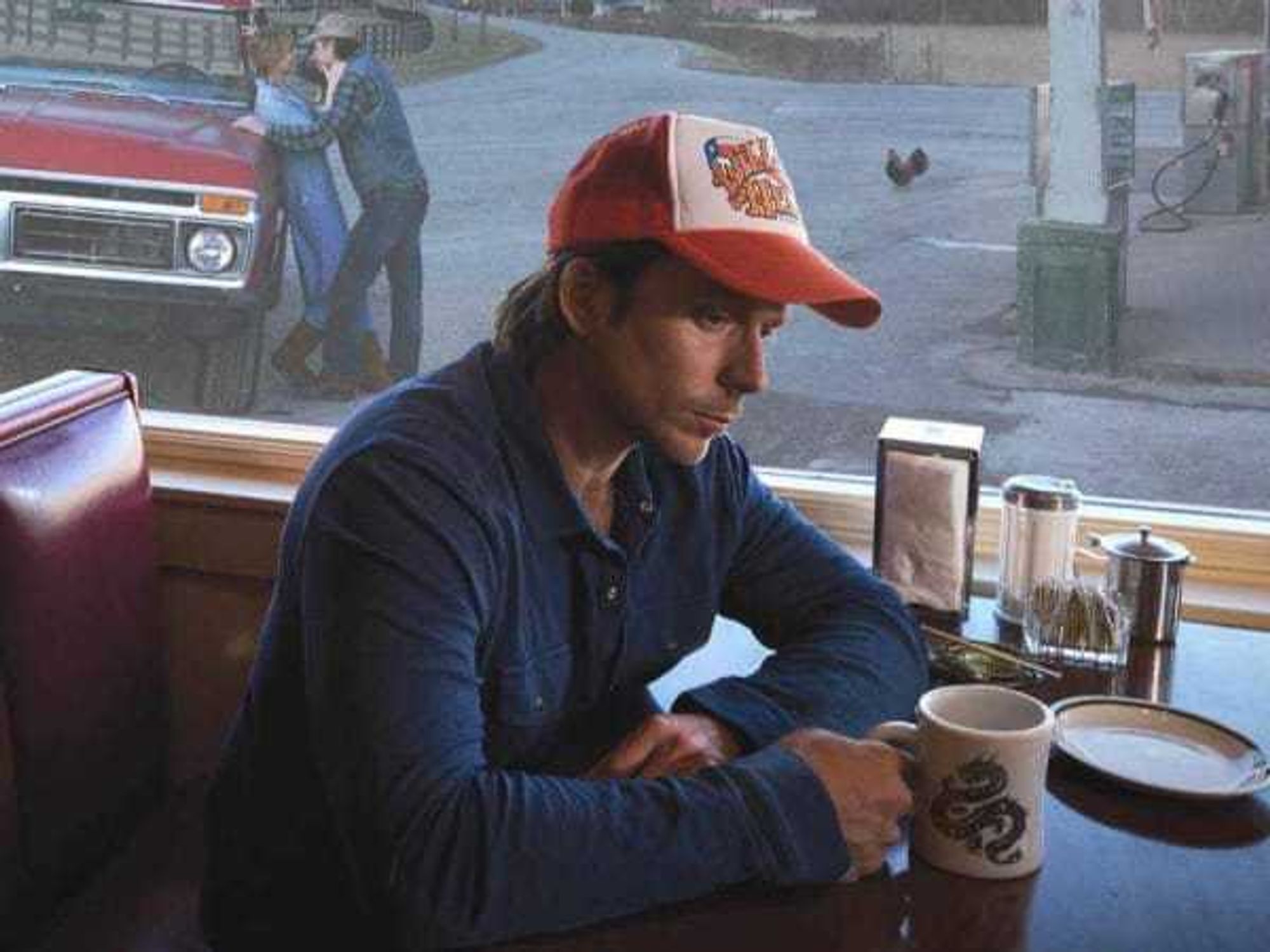Environmental Milestone
Thought leaders & community icons convene for The Nature Conservancy of Texas' 50th anniversary
About 700 people gathered on Thursday, February 13 to celebrate a major milestone for The Nature Conservancy of Texas: the nonprofit's 50th anniversary of protecting natural resources and the environment across our state.
Supporters, high-profile Austinites and international thought leaders gathered at the Hilton Hotel Austin for a luncheon to celebrate this achievement. Senator Kirk Watson was the emcee for the event. Watson was introduced by Tom and Lynn Meredith, who talked about the direct impact of natural resources like the Gulf of Mexico.
Senator Watson took the stage as moderator for a lively panel discussion featuring Laura Huffman, state director of The Nature Conservancy; Giulio Boccaletti, managing director of Global Freshwater; and David Banks, managing director of Africa Program.
Introducing Huffman, Watson said, "Her talent is knowing what the big issues are, and how to bring the right people to the table to solve them." Watson then kicked off the panel discussion by asking Huffman to name the top three environmental issues facing us today.
""I want to challenge you on this 50th anniversary to individually be a leader in conservation ... We all need to work together, so that in 20 years the next generation will say we did right by them." - Senator Kirk Watson - Se
Protecting land, protecting our oceans, and fresh water was Huffman's answer. Population growth around the globe is a huge factor impacting all of these issues. Huffman described how The Nature Conservancy actually models climate change in the Gulf of Mexico to study exactly how the environmental changes will impact our natural resources and ultimately, everything else. Protecting the natural infrastructures such as reefs and ocean life is paramount to sustaining environmental resources.
"When you put nature back together, it turns out it does a pretty good job of this itself," Huffman said.
The hundreds of people in attendance — which included donors, city and state leaders, major corporations and scientists — listened in rapt attention as Huffman, Boccaletti and Banks discussed issues ranging from the elephant ivory trade to tech innovations in conservation and improving agricultural waste of water resources.
Nature Conservancy scientists have always tackled these and other issues that present the planet's toughest environmental challenges. With world population growing at record speed and most of this growth concentrated in urban areas, there is enormous pressure on our natural resources. Urban areas are facing growing extremes including sea level rise, mega-storms, record temperatures and severe droughts — and Texas has not been immune.
"The problems that cities face in the 21st century are not problems that we can solely build our way out of," says Huffman. "More and more, cities are looking at watersheds, wetlands and forests as utility assets that, when properly utilized, can help us withstand more extreme and crowded conditions. In Texas, we have become a unique testing ground for streamlining the next generation of urban policies and strategies to ensure a better earth for future generations."
Statewide partnerships have resulted in more than 838,000 protected acres across the state, including more than 200 miles of stream and river habitat within five of Texas’ most critical springs. Projects benefit nearly a dozen different waterways around the state and safeguard nearly 250,000 acres of Texas’ coastline.
TNC Texas has helped protect some of the state’s most iconic places, including the Davis Mountains, Dolan Falls and the Gulf of Mexico. The nonprofit has also helped secure habitat for iconic, but threatened, species, like the whooping crane, Kemp’s Ridley sea turtle and the ocelot. In Travis County alone, TNC Texas helps protect the Barton Creek Habitat Preserve, Hamilton Pool, the Pedernales River and Davis Mountains Preserve.
As the luncheon drew to a close, Senator Watson issued a challenge to the attendees, asking them to ponder this question: "Where do each of us individually fit in dealing with these issues? I want to challenge you on this 50th anniversary to individually be a leader in conservation. That means you can't be satisfied with the status quo. We all need to work together, so that in 20 years the next generation will say we did right by them."
Huffman thanked everyone for coming, and issued the luncheon's final statement. "I want to leave you with this. Think through those magical moments you've had with nature. It's our obligation to make sure those things are available to others."
